The Mojaloop Foundation is not only addressing the challenge of financial inclusion but also engaging in research that could benefit other interdisciplinary communities in making a meaningful impact. Kyeyoung Shin is a doctoral researcher in management and strategy at the University of Oxford. His work explores how innovation ecosystems are built and orchestrated to address major societal challenges, such as financial exclusion in emerging economies.
Currently, he is researching how the Mojaloop Foundation aligns stakeholders in government, finance, and tech into a collaborative community focused on solving the pressing global issue of financial inclusion.
Affiliated with both Saïd Business School and Green Templeton College at the University of Oxford, Kyeyoung has a rich academic and professional background, including a master’s in international policy studies from Stanford University and a political science degree from New York University. His thesis is expected to be completed within the next one to two years. Before pursuing his doctoral research, he worked at the World Bank’s Finance, Competitiveness, and Innovation Global Practice, focusing on innovation and entrepreneurship policy. He kindly agreed to speak with us about his research.
Connect with Kyeyoung Shin on LinkedIn >
What initially interested you about the Mojaloop Community?
What really caught my eye with Mojaloop was the mission to advance financial inclusion through open-source technology. That really resonated with me. The way Mojaloop brings together diverse stakeholders to create an innovative and inclusive platform aligns perfectly with my research on ecosystems and business models. The fact that anyone can adapt Mojaloop to meet their local needs is especially compelling.
I was also drawn to the impact Mojaloop has made in the real world. Watching the public sector’s growing interest in Mojaloop over the past two years has been incredibly exciting.
Although I try not to intervene and introduce bias in my research, I do participate in Community meetings and discussions to collect primary data. In the long-term, I hope to contribute an academic perspective that can help enhance Mojaloop’s implementation and adoption across different regions.
What was it like engaging with the community?
When I first joined the Mojaloop Community, it was both exciting and a little bit challenging. Although the Community is very welcoming and collaborative, coming from an academic background into a predominantly industry-driven space required some adjustment.
One hurdle was getting up to speed with the technical aspects of Mojaloop, which isn’t my usual area of expertise. To overcome this, I immersed myself in Community calls, workshops, and resources on the Mojaloop Foundation’s website, including their training programs and YouTube videos, especially the recordings of the convening sessions.
Building connections and establishing trust was another challenge. Initially, I was a stranger, but I made a point to actively participate in discussions and share my research. Over time, as I attended more in-person meetings and online calls, the Community became familiar with my work, leading to more open conversations and deeper trust. It was a gradual process, but persistence paid off.
How will your research help other communities trying to solve big societal problems?
My research aims to develop theories based on the findings in the Mojaloop Community to help other communities working on big societal problems, particularly those aligned with the UN’s Sustainable Development Goals (SDGs).
Many organizations are trying to form and manage innovation ecosystems around core societal missions, whether it’s financial inclusion, climate change, or biodiversity. These ecosystems face similar challenges, especially managing diverse stakeholders with different interests. By studying how the Mojaloop Foundation navigates these complexities, I hope to extract lessons that can be applied to other innovation ecosystems.
While my primary focus is on the Mojaloop project, I’m also exploring other contexts, such as central bank digital currency ecosystems and green hydrogen innovation ecosystems. In the future, I plan to study other open-source technology initiatives. My research will highlight strategies that could contribute to addressing common ecosystem challenges, such as integrating public sector actors for greater impact and balancing collaboration and competition within these ecosystems.
What opportunities and benefits do you see for other academics?
Academics may discover a range of opportunities in the Mojaloop Community. It’s a valuable space for research collaboration, knowledge sharing, and applying theoretical concepts in a practical setting. Academics can dive into critical challenges like interoperability, regulatory issues, or boosting user adoption.
The open-source nature of Mojaloop offers interesting research opportunities, as well as chances to contribute to its development and deployment for impact. Whether you’re from a management, engineering, sociology, or political science background, there’s plenty to explore.
The biggest benefit is the opportunity to conduct research that has a direct and positive impact on society. You’re not just studying abstract concepts; you’re working on real-world problems like financial exclusion. The community is very collaborative, allowing you to exchange ideas with people from diverse backgrounds, potentially influencing policymaking, which could impact entire populations.
Additionally, being part of this community connects you with industry experts, policymakers, and tech innovators, opening doors to new research partnerships, funding opportunities, and valuable networking.
Is there anything else you’d like to mention?
My experience with the Mojaloop Community has been incredibly rewarding. It has given me the opportunity to learn from the practitioners who are championing financial inclusion in emerging economies and translate these insights into theories applicable to other empirical settings. The people at the Mojaloop Foundation, including Steve Haley, Simeon Oriko, and Paula Hunter, have been exceptionally helpful and kind. I’ve interviewed many community members who generously shared their experiences, challenges, and tensions. I’m grateful for their time and look forward to giving back by sharing my research findings.
While academic papers can take years to publish, I’m also working on shorter articles for practitioners. For instance, I’m collaborating with Steve on an article about go-to-market strategies for open-source software initiatives. I’m open to more collaborations, so if anyone is interested in being interviewed or co-authoring an article, please reach out to me.


